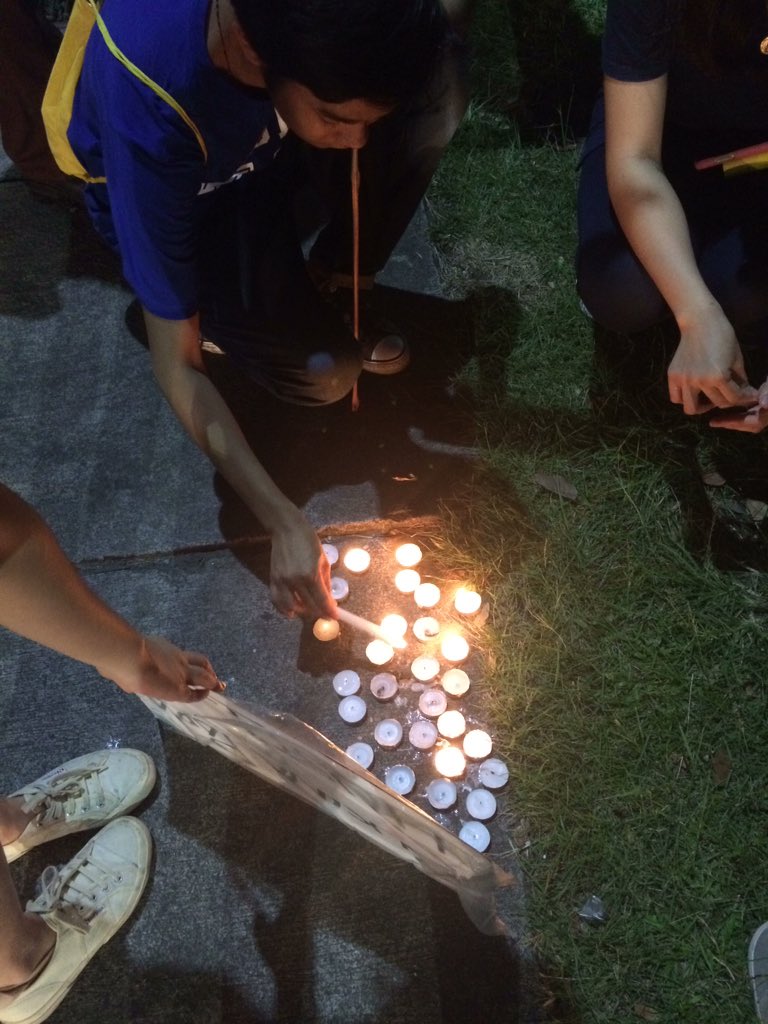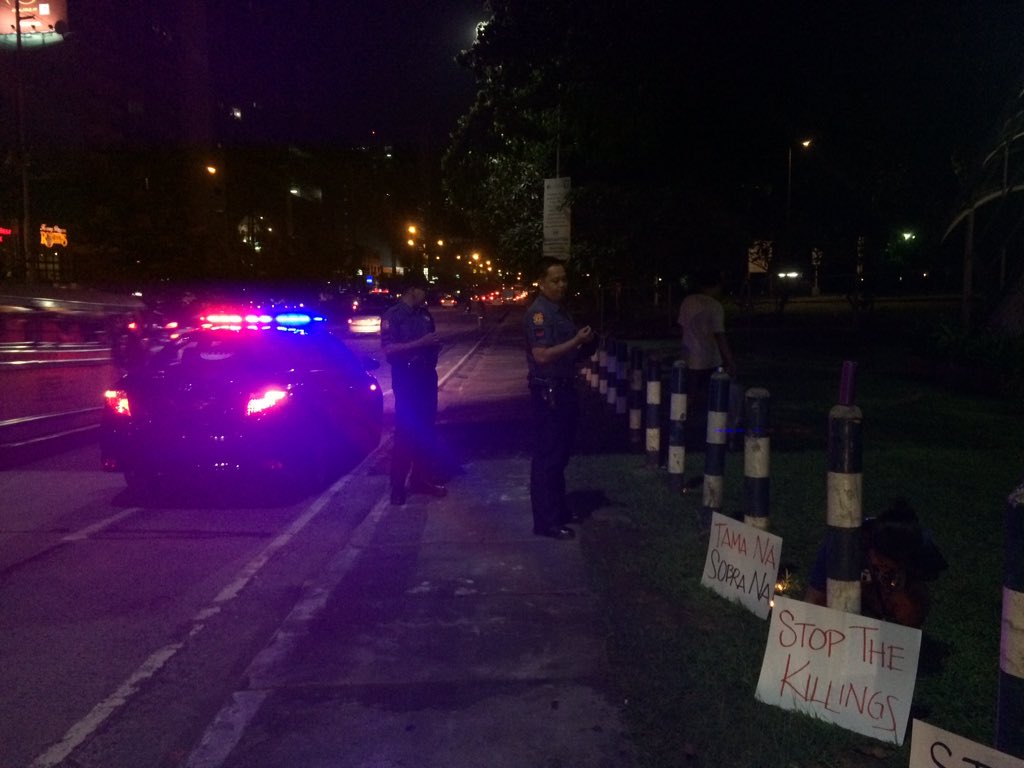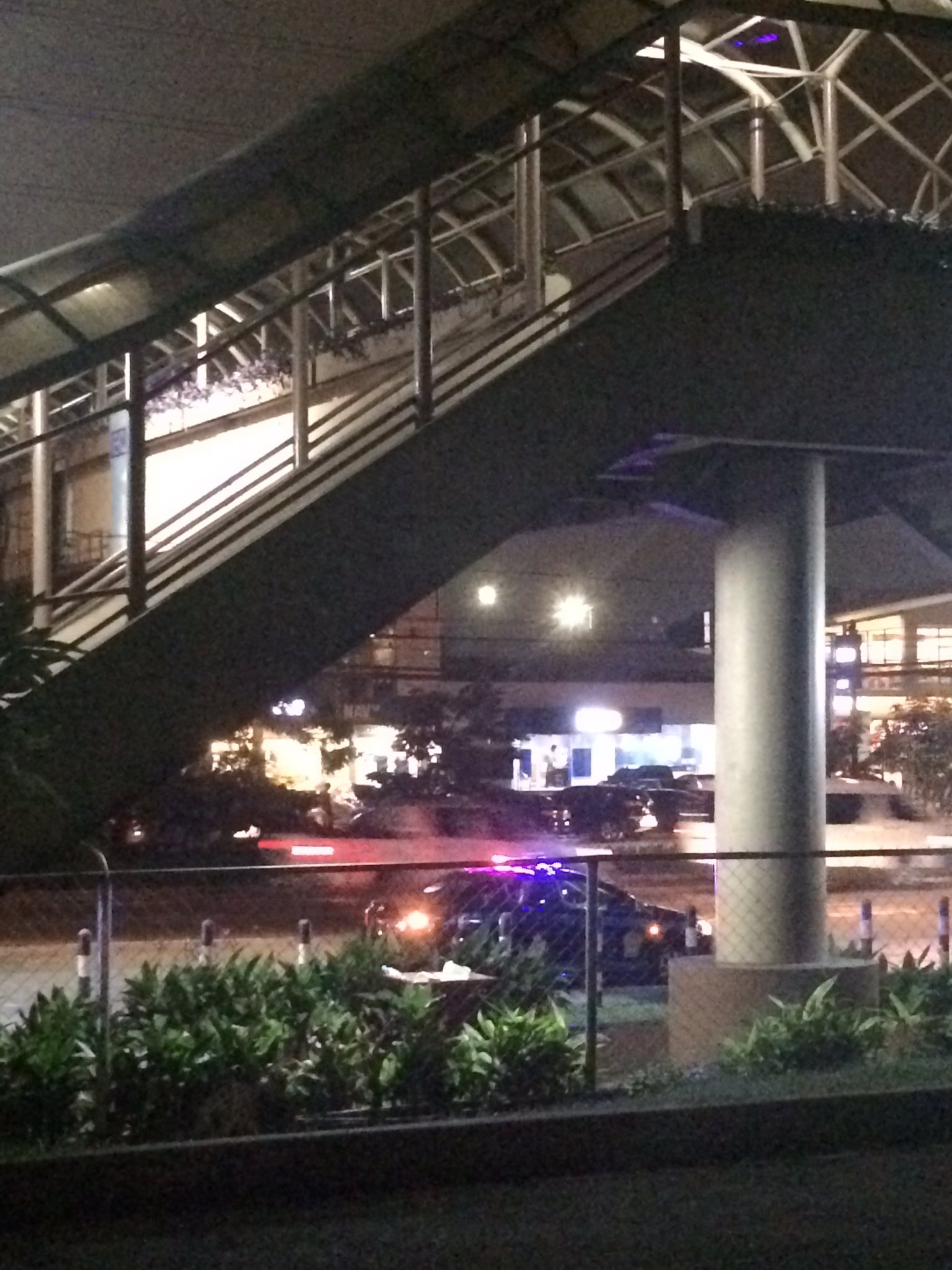Last Thursday night, Aug. 24, students and faculty members of Ateneo de Manila University gathered at Gate 2.5 for a mobilization and noise barrage protesting the extrajudicial killings (EJK) and war on drugs victims (or “collateral damage” as Aguirre would call them).
At 8:24 p.m. on the dot, the assembly quieted down for a vigil honoring the death of 17-year-old Kian Delos Santos. Around 40 to 50 attendees lit candles for Delos Santos and all the victims of the war on drugs. It was their way of ending the night.

This wasn’t the first time that the university held a rally against EJK and the war on drugs. It probably won’t be the last. Just like every assembly held in and by Ateneo, the gathering last night was organized and non-violent.
Still, a couple of minutes after the moment of silence, a black, unlicensed police cruiser arrived at Gate 2.5. Two policemen stepped out of the vehicle, and just stood there. When a female staff of the university approached the officers to ask the purpose of their presence, the two men answered her question with a question.
“Ano bang pinaglalaban ninyo?”

They also asked who the leaders and the organizers of the mobilization were. The female staff refused to give them names. When a security guard was asked to scan the faces and names of the policemen, the security guard said they turned away. Later, the vehicle identified with the ID “QCPD-237” on its body.
You can follow the unfolding of events from last night through the coverage of The Guidon, the official student publication of Ateneo de Manila University.
Confused and threatened by the inexplicable presence of the police, the students were advised by the faculty and staff of the university to go back inside the university and disperse. “We’re trying to find the balance between the two–protecting students and fearlessly speaking out–because the fact of the matter is, we should speak out when things get worse. When we’re silent we’ve taken the side of the oppressor. I guess we’re going to have to find more creative ways to protest,” School of Social Sciences Representative Dasha Uy said in an interview with The Guidon.
Uy goes on to express how they find the inexplicable presence of these policemen in their mobilization as both “terrifying and disgusting.” It can be argued that the presence of the officers in an event such as this threatens freedom of speech by means of intimidation. Not to mention that the demonstrators were technically inside private property.

In the face of confusion, fear, and indignation, the student body and faculty members of the university were quick to spread information on what to do in the face of police intimidation. Here are some quick reminders.
- Ask if they have a warrant. That’s the first thing you should do. If they don’t, they can’t make you go anywhere with them. They can’t make you submit to a physical body search either.
- Don’t step out of your house or your vehicle. Again, if they don’t have a warrant, you do not have to comply with any of their commands. Even at checkpoints, the most they’re allowed is a visual search.
- Be polite and courteous but firm in your answers. Don’t be loud or aggressive when responding to their questions. They can use that against you in court.
- Always keep the number of your lawyer at hand. If you don’t have one, then ask for one immediately.
- Remember your Miranda rights. You know the lines from every cop tv show or action film you’ve seen. You have the right to remain silent and refuse to answer questions. Anything you say may be used against you in a court of law. You have the right to consult an attorney before speaking to the police and to have an attorney present during questioning now or in the future. If you cannot afford an attorney, one will be appointed for you before any questioning if you wish. If you decide to answer questions now without an attorney present, you will still have the right to stop answering at any time until you talk to an attorney.
There will be another mobilization held at Gate 2.5 of the university later today.
Read more:
Voting for Duterte was a mistake
Why Kian’s death is a breaking point for Duterte’s drug war
Writer: ANTHEA REYES



